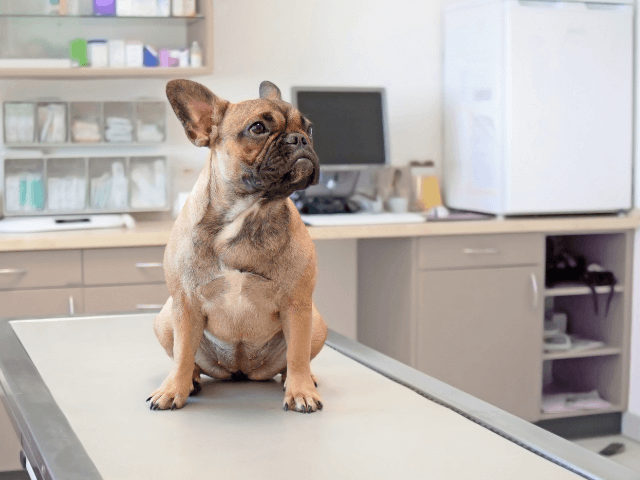Everything You Need to Know About Dog Lab Work
At Acton Veterinary Group, we know that maintaining your dog’s health is your top priority. Routine laboratory testing is one of the most effective ways to ensure your dog stays healthy throughout their life. Here’s everything you need to know about the different types of lab work for dogs and how it can benefit your dog’s well-being.

Why Are Laboratory Tests So Important for My Dog’s Health?
Laboratory tests help veterinarians gain valuable insights into your dog’s overall health. These tests are essential for detecting early signs of illness, monitoring ongoing health conditions, and providing baseline data for future reference. Routine lab work can help catch diseases that may not yet show visible symptoms, allowing for early intervention and better long-term outcomes.
Types of Lab Work for Dogs and How They Are Performed
There are several key types of lab tests for dogs, each with a specific purpose:
- Urinalysis: A urine test evaluates kidney function and can detect urinary tract infections, diabetes, and signs of metabolic diseases.
- Fecal Exam: A fecal exam looks for parasites such as worms or protozoa, which can affect your dog’s digestive health and overall well-being.
- Complete Blood Count (CBC): A CBC evaluates your dog’s red and white blood cells and platelets. It can detect infections, inflammation, anemia, and other blood-related conditions.
- Cytology: Cytology involves examining cells from your dog’s body (such as skin, ears, or lumps) under a microscope. This test helps diagnose infections, allergies, and even cancer.
Why Are Routine Blood Tests Important for My Dog?
Routine blood tests provide vital information about your dog’s internal health. They are especially important as your dog ages since many diseases become more common with age. Blood tests help detect early signs of diseases like kidney disease, liver problems, diabetes, and infections, allowing veterinarians to treat conditions before they become severe.
Understanding the Chemistry Markers on Your Dog’s Blood Work
Here are the key chemistry markers that veterinarians analyze during blood work and what they reveal about your dog’s health:
- ALT (Alanine Aminotransferase): Indicates liver function. High levels suggest liver damage or disease.
- Ca (Calcium): Helps assess bone health and detect potential issues with the parathyroid gland or cancer.
- ALB (Albumin): A protein produced by the liver, albumin helps maintain fluid balance. Low levels may indicate liver or kidney disease.
- Cl (Chloride): Helps assess electrolyte balance. Abnormal levels may suggest dehydration, kidney disease, or metabolic disorders.
- LIP (Lipase): A marker for pancreatic function. Elevated levels may indicate pancreatitis.
- ALKP (Alkaline Phosphatase): High levels may point to liver or bone disorders, or even Cushing’s disease.
- CHOL (Cholesterol): Elevated cholesterol levels may indicate hypothyroidism, diabetes, or liver disease.
- PLT (Platelets): Essential for blood clotting. Low levels can indicate clotting disorders or bone marrow disease.
- GLOB (Globulins): These proteins help fight infections. Abnormal levels may indicate inflammation, infection, or immune system disorders.
- AMYL (Amylase): A marker for pancreatic function. High levels can signal pancreatitis or kidney disease.
- CORT (Cortisol): Elevated levels may suggest Cushing’s disease, while low levels can indicate Addison’s disease.
- K (Potassium): Helps assess kidney function and overall electrolyte balance. Abnormal levels can affect heart and muscle function.
- GLU (Glucose): High glucose levels may indicate diabetes, while low levels can suggest hypoglycemia.
- AST (Aspartate Aminotransferase): Another enzyme that indicates liver or muscle health. Elevated levels may indicate liver disease or muscle damage.
- CREA (Creatinine): A marker for kidney function. Elevated levels suggest kidney disease or dehydration.
- RETICS (Reticulocytes): Immature red blood cells. High levels may indicate anemia or bone marrow disorders.
- GRANS and L/M (Granulocytes and Lymphocytes/Monocytes): These white blood cells help fight infections. Abnormal levels may indicate infection, inflammation, or immune system issues.
- BUN (Blood Urea Nitrogen): A marker for kidney function. Elevated levels can indicate kidney disease or dehydration.
- EOS (Eosinophils): Elevated levels may suggest allergies, parasites, or inflammation.
- Na (Sodium): Helps regulate fluid balance and hydration. Abnormal levels can affect muscle and nerve function.
- Hb and MCHC (Hemoglobin and Mean Corpuscular Hemoglobin Concentration): These markers assess the oxygen-carrying capacity of red blood cells. Abnormal levels can indicate anemia.
How Does a Baseline Lab Test Benefit the Health of My Dog?
Establishing baseline lab results for your dog while they are healthy allows your veterinarian to track changes over time. These baseline values serve as a comparison point for future tests, making it easier to detect any abnormalities or shifts that may indicate a developing health issue. For example, monitoring WBC (White Blood Cells) can reveal potential infections or immune-related issues, even if your dog shows no outward signs of illness.
Why Is Early Detection and Diagnosis of Dog Illnesses Using Lab Work So Important?
Early detection is crucial for managing many serious health conditions in dogs. Diseases such as kidney failure, liver disease, diabetes, and cancer often don’t present symptoms until they are advanced. Routine lab work allows your veterinarian to identify these issues in their early stages when treatment is more likely to be effective. Early diagnosis and intervention can lead to better treatment outcomes and improve your dog’s quality of life.
Conclusion
Dog lab work is a critical tool in maintaining your pet’s health and well-being. At Acton Veterinary Group, we recommend routine lab testing to detect potential health concerns early, monitor ongoing conditions, and establish baseline values for your dog. Contact us today to schedule your dog’s next check-up and ensure they stay happy and healthy for years to come.
